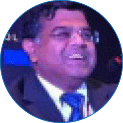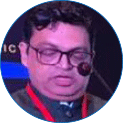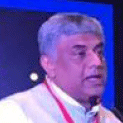It was a star-studded evening at the Hyatt Regency as politicians and economists came calling under the aegis of the Madras Management Association to roll out their views on the functional governance for a new India. Excerpts:

• Political compulsions do not necessarily lead to a good economy, and economic pressures do not necessarily result in good politics. Economists support policies with an interest in the growth of the nation whereas politicians look at policy making with an objective of getting elected and re-elected. It is time to audit contemplate whether the policies that are framed by each political party during their rule time are acceptable in the broader domain of the political economy. Touche.
• Competition is not limited to industries. It is worldwide and is between the governments of the countries to attract more investment and create jobs.

• The statement, “Democracy reduces the rate of growth is a positive assertion and can be tested out. Even if income is lower, we should prefer democracy because freedom, though intangible, is still invaluable. This is a normative statement, and differs from person to person, based on preferences. Economists make positive statements but end up mixing positive and normative
comments.
• Often economists make a recommendation based on aggregate costs and benefits. An affirmative statement that most economists agreed on was: If there is free trade with no import and export restrictions, no exchange controls, etc., the resulting global GDP would be higher. But in every free trade agreement, some country, some industry or some consumers would lose.
• When economists support the majority with significant benefits and indirectly let the minority to suffer, they don’t think of compensating the losers. 95 per cent of British economists would have voted against Brexit, but the majority of the population voted ‘for.’ This was because while there are aggregate benefits, there were significant losers within the United Kingdom. Politicians understand this, economists do not.
• “An increase in interest rate will reduce the level of economic activity,” is a positive statement as it can be tested. “Reducing the level of economic activity will reduce the rate of inflation,” is another positive statement. Economic evidence is mixed. Sometimes if you have cost-push inflation say, coming from imported prices of oil going up, reduced level of economic activity does not by itself cure you by inflation. When we agree on both statements, then raising interest with lower inflation is a good thing and it will also lead to lower growth which is not a good thing. So do you prefer low inflation with little growth or high inflation with high growth? That’s where politics steps in. When an economy benefits some and harms others, there are obvious political implications.
• The role of the economist is to help a democratically elected executive make better choices with the available information.

• The government of India will have a debt of Rs 90 lac crore. Of this, Rs 54 lakh crore are not represented by assets. At an interest rate of 8 per cent on the Rs 54 lakh crore, we pay about Rs.4 lakh crore as interest for liabilities which are not represented by assets. There are liabilities which were contracted when the dollar ranged between Rs.30 and Rs.40 and the Rs.90 lakh crore is calculated using these rates!
• The income from GST in October 2018 is Rs.1 lakh crore. This translates to about Rs 12 lakh annually. Of this Rs 6 lakh goes to the central government. With so much of struggle. We bring GST, but finally out of Rs 6 lakh crore Rs 4 lakh crore goes to payment of interest on which there are no assets!
• Seven crore citizens of Tamil Nadu pay taxes but the total income of Rs147,000 crore is mainly spent on salaries, wages, pension, and interest. At the end of the day, Tamil Nadu government spends Rs.30,000 crore as capital expenditure out of borrowing. There are states in our country which collect taxes only to pay salaries and interest. But GDP will grow as it just calculates the flow.

The coming era is the Era of GIVE (Governance, Innovation, Valuation, and Entrepreneurship)
• Politics is about leaders and identities, while economics is about structures and ideas.
• The central government made state governments spend money on every scheme they introduced, but took away all the credit! This is unfair in a federal structure.
• Strong states, which can become the epicenter of economic activity, will lead India to become a stronger nation.

Without political democracy, economic democracy has no significance. Agarwal spoke about the way in which BJP formulates and implements the policies. According to him, they identify the problem and then go about improving the technological infrastructure in order to solve the problem. The third and most important part is integrating technology and stakeholders with the help of intermediaries in order to implement the policies. The final steps are fixing accountability of intermediaries and transparency in delivering the requirements to the ultimate stakeholders.

